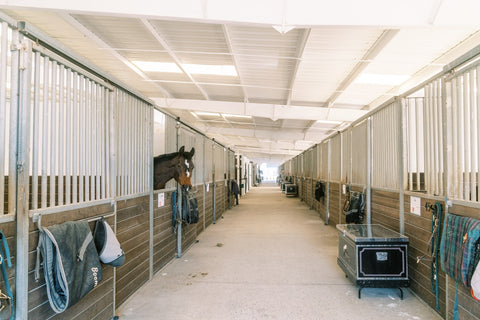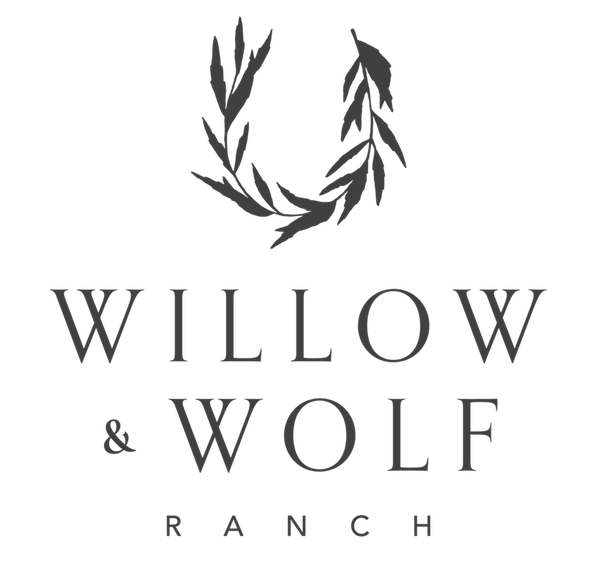Horse Boarding
Willow and Wolf Ranch is the premier horse boarding and training stables in the Bay Area for retirement boarding and competitive riders. Nestled in the picturesque landscapes of Livermore, CA, our exclusive facility offers a haven for both horses and their owners, providing an unparalleled boarding and training experience. With a prime location near Danville, Pleasanton, San Ramon, Castro Valley, Oakland, and Blackhawk, we are the ideal choice for equestrians seeking top-notch care and a flourishing equestrian community.

Indoor Riding Arena with Olympic Footing
At Willow and Wolf, we offer a variety of boarding options to suit the needs of every horse and owner, from spacious pastures where horses can roam freely to well-appointed stalls for individual care. Our retired horse boarding program is designed with the utmost attention to detail, ensuring that every horse enjoys their golden years in comfort and tranquility.
Our facilities cater to the equestrian enthusiast seeking top-tier horseback riding lessons, with programs tailored to all levels, from beginners to advanced riders. Our experienced instructors and well-trained horses provide an unparalleled riding experience, emphasizing safety, technique, and the joy of riding.
What sets Willow and Wolf Ranch apart is our commitment to harmony between horses and nature. Our approach to care is holistic, ensuring that every horse receives personalized attention, regular veterinary and farrier services, and a diet suited to their specific needs. We believe in keeping owners connected with their horses, offering regular updates and welcoming visits to the ranch.
Choose Willow and Wolf Ranch for a boarding experience that combines luxury, care, and the natural beauty of the Bay Area. Discover a place where horses and riders can thrive together in harmony.
Join us in the Bay Area where devotion meets excellence. Our facility is a sanctuary of optimal care for horses and a cradle of comprehensive education for competitive riders. Fueled by a community of passion and a team of experts, we craft an equestrian experience where every stride echoes quality, care, and the fulfillment of equestrian dreams.
Under new ownership since November 2018, Willow and Wolf Ranch (formerly known as Diamond Hills Equestrian Center) takes pride in setting the standard for excellence in horse boarding. Our dedication to exceptional horsemanship and unwavering commitment to the well-being of our equine companions is what sets us apart from the rest.
What makes Willow and Wolf Ranch stand out among other boarding facilities? It's simple – we offer a winning combination of luxury amenities, expert care, and a serene environment that fosters a strong sense of camaraderie among fellow horse enthusiasts.
Our facility boasts gorgeous private boarding options, ensuring that your beloved horse receives individualized attention and care. From spacious stalls equipped with soft bedding and regular cleaning to ample turnout spaces allowing for free movement and grazing, we prioritize your horse's comfort and happiness.
At Willow and Wolf Ranch, safety is paramount. Our well-maintained barns and secure fencing provide a safe haven for your equine companion. Our team of experienced staff members is on-site 24/7, providing attentive care and quick response to any need that may arise.
Beyond the excellent boarding services, we offer top-tier horse training programs led by skilled professionals. Whether you're seeking basic groundwork, specialized discipline training, or preparing for competitions, our trainers are dedicated to nurturing the full potential of both horse and rider.
Joining our community means becoming part of a supportive and like-minded group of equestrians who share a passion for horses. Social events, clinics, and workshops regularly take place on our grounds, fostering a sense of camaraderie and learning that enriches both horse and rider experiences.
Discover the best horse boarding experience the Bay Area has to offer at Willow and Wolf Ranch. Come and witness the beauty of our facility, meet our attentive team, and envision your horse thriving in our care. Contact us today to secure your horse's place in our exclusive boarding community, and let us embark on this remarkable equestrian journey together. Your horse deserves the very best, and that's precisely what we provide at Willow and Wolf Ranch.

Inside Stall with Oversized Paddock; includes auto water, fly repellent systems using a safe, environmentally, human, and horse friendly spray.

Indoor Arena with Olympia Footing
If you are interested in becoming a part of our private training barn please contact us to learn about current openings to our program(s).
Ample Turn-Outs

"To be able to design helpful methods, we have to have profound knowledge. We have to study the horse's anatomy and biomechanics so that we can decide which part of the system needs strengthening. This leads to the design of movements and exercises which we feel confident will have the desired effect, so that they will compel the horse to activate his muscular system, in the relevant areas."
- The Baron Hans Von Blixen Finecke"
Rider's recognition of himself in space: Rider's bio-mechanics; rider's ability to identify and separate the use of different muscle groups; rider's ability to influence the horse (positively or negatively), riders direction of force.
Rider's recognition of the horse in space: Horse's biomechanics, alignment, balance, dynamics of gait, horse's direction of force.
Approaching the horse's learning process sympathetically: Horses don't have foreknowledge of what will be asked of them. They learn retrospectively- they must "sum-up" what the intended response is after the correction or reward takes place. They also are not emotionally interested in pleasing or displeasing the rider. They are mostly looking out for their own best interest and draw from what has worked in the past, however, we do see different levels of ease of influence.
Creating a training process that begets the wished-for result: having realistic expectations when something is new; encouraging the horse to experiment; recognizing the horse's first true attempt at accommodating the rider; discernment of when the rider should ask for more and when the rider should "let him off" and reward; deciphering between bewilderment and a "bad-attitude"; how to make effective corrections.
Developing strategy: The what to do, i.e., actions, exercises, patterns, etc.
Developing technique: The how to do it, i.e., refining the rider's skill, use of their body to have maximum influence over the horse, etc.
Evaluating the horse for positive results: Horses in training should show positive side-effects of correct riding and schooling. Development of musculature, development of gaits (improved form and function), the progression of trainability, ride-ability, and willingness.
Grand Prix Dressage Trainers
